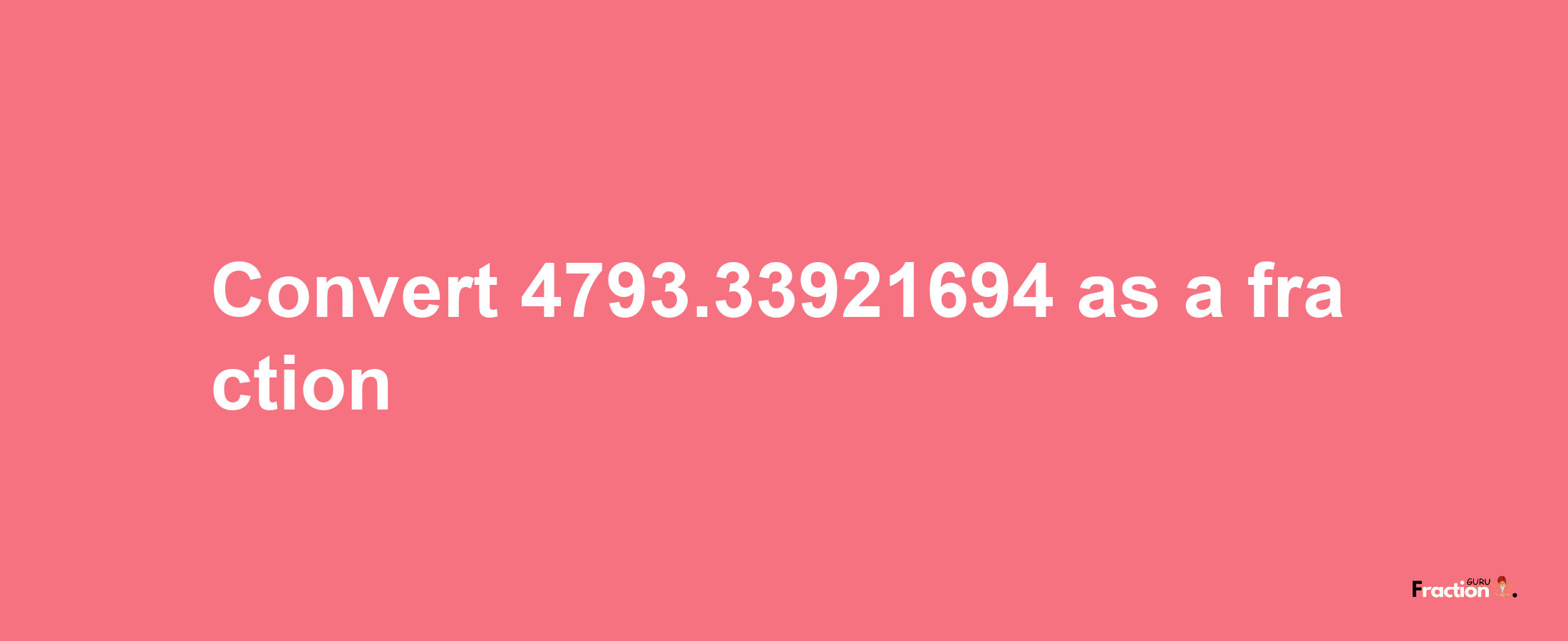Step 1:
The first step to converting 4793.33921694 to a fraction is to re-write 4793.33921694 in the form p/q where p and q are both positive integers. To start with, 4793.33921694 can be written as simply 4793.33921694/1 to technically be written as a fraction.
Step 2:
Next, we will count the number of fractional digits after the decimal point in 4793.33921694, which in this case is 8. For however many digits after the decimal point there are, we will multiply the numerator and denominator of 4793.33921694/1 each by 10 to the power of that many digits. So, in this case, we will multiply the numerator and denominator of 4793.33921694/1 each by 100000000:
Step 3:
Now the last step is to simplify the fraction (if possible) by finding similar factors and cancelling them out, which leads to the following answer for 4793.33921694 as a fraction:
268427/56 / 1


